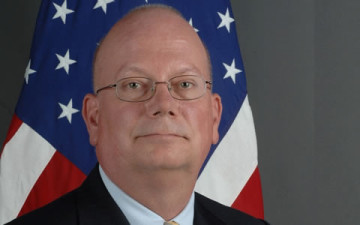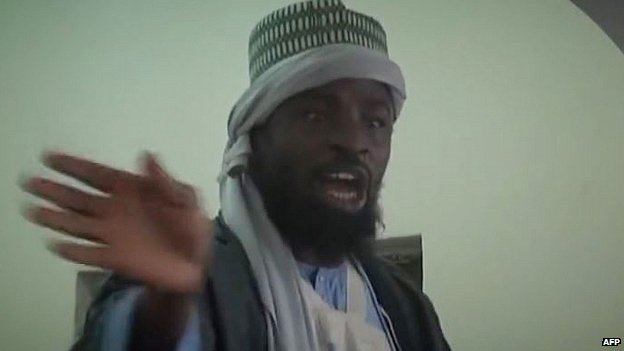
US Ambassador to Nigeria, James Entwistle
There are indications that the United States’ government has finally agreed to send arms to the Nigerian military in its efforts to crush Boko Haram.
“There’s been a lot of misunderstanding on this issue before, during and after President Muhammadu Buhari’s visit to Washington. Let me be clear about a couple of things. One, we had worked very closely with Nigeria on the Leahy Amendment….The second piece of misinformation, which has been bandied about in (newspapers’) headlines, is that the US has lifted its arms embargo on Nigeria. There was never an arms embargo,” Entwistle said.
A report by Radio France Internationale indicates that the US Defence Security Cooperation Agency records show that the country’s Department of Defence is set to transfer military material to Nigeria.
According to the RFI, a DSCA list of “so-called Excess Defence Articles” slated for Nigeria indicated that the US Army was about to transfer Caiman trucks, armoured vehicles designed “to defeat current and emerging threats,” according to their manufacturer, British-based BAE Systems.
The radio firm added that the US government was also sending armoured vehicles known as MaxxPro MRAP (Mine Resistant Ambush Protected), made by Navistar Defence, an Illinois company, and Israeli-based Plasan Sasa.
This report is coming in the heels on the heels of the US Ambassador to Nigeria, James Entwistle’s revelation in an interview with The Punch that the US government never placed arms embargo on Nigeria.
It is unclear however which Nigerian military units will receive the equipment, but the report said that the US government had confirmed that deliveries were pending.
The PUNCH reports that when it contacted the state department to confirm the types of military hardware the US would be sending and when deliveries of the weapons would be made, it was directed to contact Nigeria’s Ministry of Defence.
The spokesperson for the US State Department, Noel Clay, via an email to The PUNCH, said, “The United States is set to expand its efforts to provide bilateral security assistance to Nigeria to counter Boko Haram. We will refer you to the Nigerian MoD to confirm the arrival of any US-origin material, but we can say that a key component of our security assistance to Nigeria in recent years has been training on the importance of respect for human rights and professional military conduct.
“Impunity for human rights violations by security forces not only tarnishes Nigeria’s reputation, but cannot prohibit us from engaging with involved units. We will continue to work with the Nigerian military to ensure they conduct disciplined military operations in accordance with clear rules of engagement and international law; treat all detainees humanely; allow access for independent monitors to all detention facilities; and hold accountable the perpetrators of unlawful violence.”














